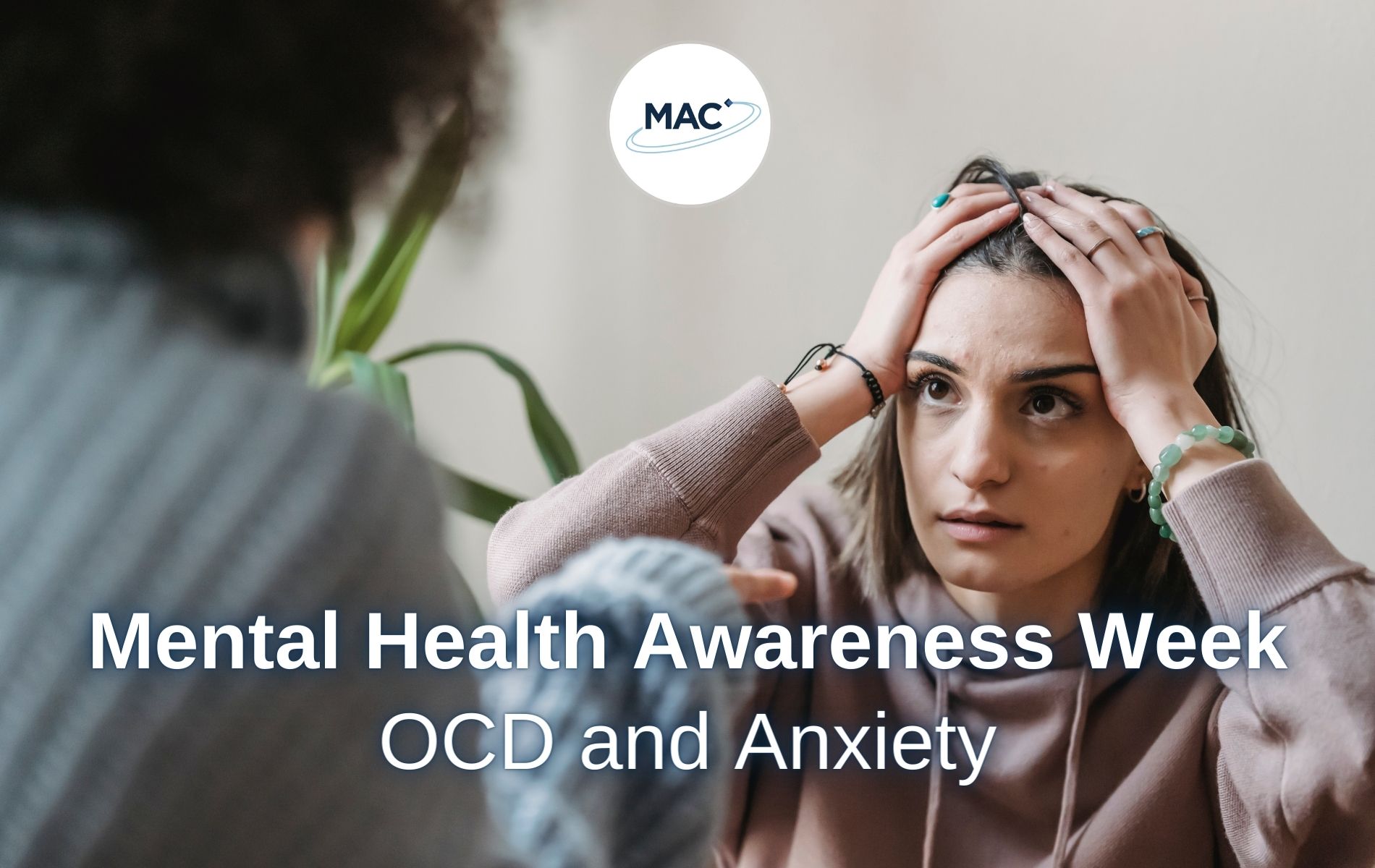Obsessive compulsive disorder (OCD) can bring with it intense feelings of anxiety and distress, brought on by intrusive, unwanted thoughts and repetitive behaviours.
This week is Mental Health Awareness Week; organised by the Mental Health Foundation, the theme of this year’s awareness week is anxiety and we want to raise awareness on how other mental health conditions can cause feelings of anxiousness. Although feeling anxious or worried is a normal emotion for everyone during stressful times, for people living with mental health conditions, such as OCD, they can be more susceptible to experiencing intense feelings of anxiety. In a 2021 study, it found that one third of the participants were living with OCD and generalised anxiety disorder (GAD).
OCD is a mental health condition where someone has obsessive thoughts which can cause compulsions (a repetitive behaviour or mental act that gives temporary relief to unpleasant feelings). It can have a severe impact on a person’s quality of life and subsequent negative effects on their social and work life.
One of the most common symptoms of OCD is the intense anxiety that accompanies obsessions and compulsions. People with OCD often experience a sense of dread, fear, or uncertainty related to their obsessions, which can manifest as physical symptoms such as racing heart, sweating, or nausea. This anxiety can be so severe that it interferes with daily functioning, leading to avoidance of certain situations or activities.
For example, someone with OCD may have an obsessive fear of contamination and engage in compulsive handwashing to alleviate their anxiety. However, this behaviour can become so excessive that they may avoid touching objects or going outside altogether for fear of being contaminated. This avoidance can then lead to social isolation, which can exacerbate feelings of anxiety.
Another way OCD can cause anxiety is through the cycle of obsessions and compulsions. When an individual experiences an intrusive thought, such as a fear of harming someone, they may engage in a compulsive behaviour, such as repeatedly checking things, to alleviate their anxiety. However, this behaviour can reinforce the obsessive thought, leading to a cycle of obsessions and compulsions that becomes increasingly distressing and time-consuming.
Additionally, the stigma and misunderstanding surrounding OCD can make seeking help or talking about symptoms difficult, leading to further feelings of anxiety and isolation.
Treatment for OCD typically involves a combination of medication such as antidepressants and cognitive behavioural therapy (CBT) with exposure and ritual prevention (ERP). However, around half of patients don’t receive adequate benefit from SSRIs so there is a need for improved treatment options.
MAC Clinical Research are currently seeking participants for a clinical trial investigating a potential new treatment for OCD which works differently to current antidepressant treatments. People with obsessive compulsive disorder tend to have signalling pathways in the brain which are overactive, causing intrusive thoughts, compulsive behaviour, or other OCD symptoms. This new OCD medication is believed to dampen down these overactive pathways, which may help people with OCD when used in combination with their usual OCD medication.
If you have been diagnosed with or have been living with OCD symptoms for at least a year, you may be able to contribute to scientific research, which could lead to a new medication to help people living with OCD.
This clinical research study is running at MAC clinics in Lancashire (Blackpool), Manchester, Merseyside (Liverpool), South Staffordshire (Cannock), South Yorkshire, Teesside, and West Yorkshire (Leeds).
You must: be between 18 and 65 years-old; have had OCD, or OCD symptoms for at least 1 year; and feel that your current antidepressant medication is not fully working. Eligible participants will receive up to £490 for their time and commitment to the study, along with reasonable travel costs. If the medication works, on completion of the study, participants may be offered the medication free of charge for 1 year. For more information on how you can get involved, visit our OCD Research page.




